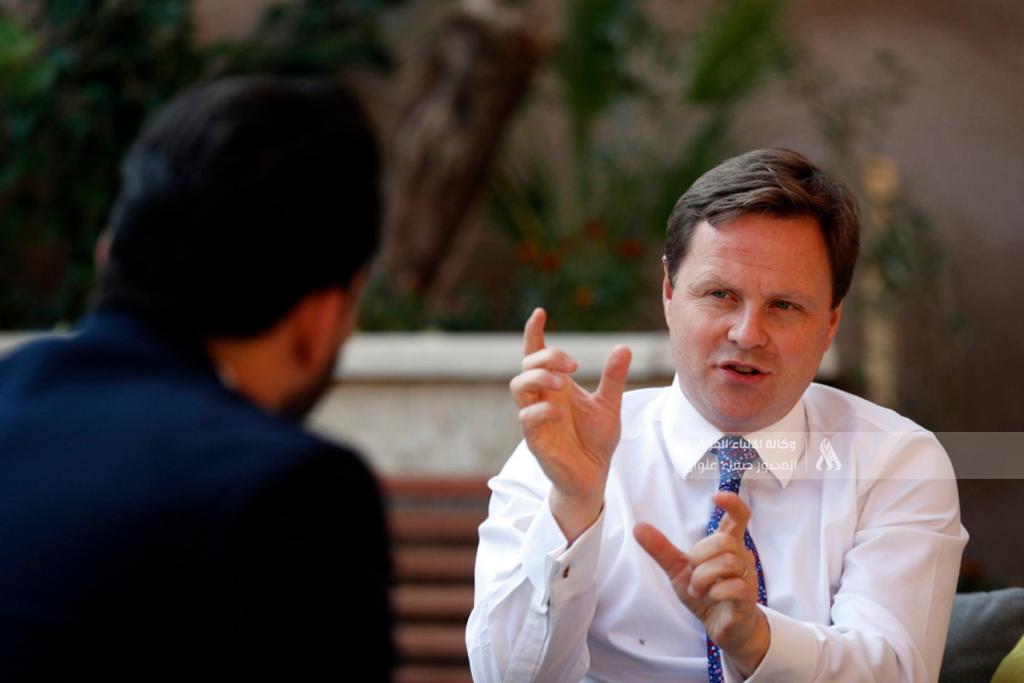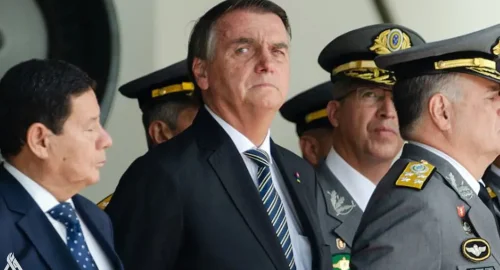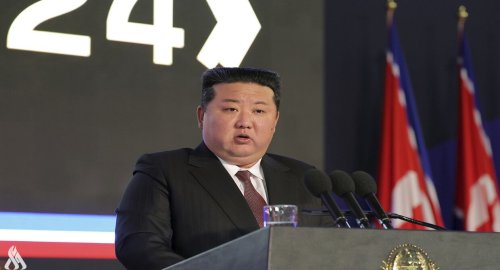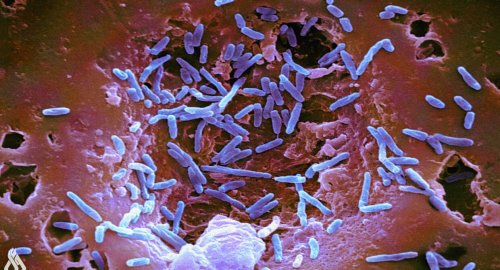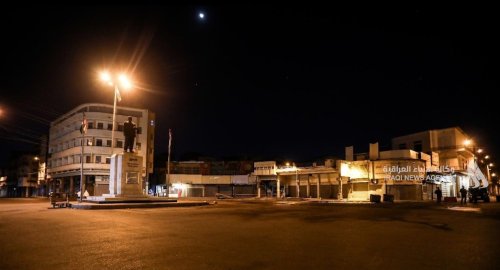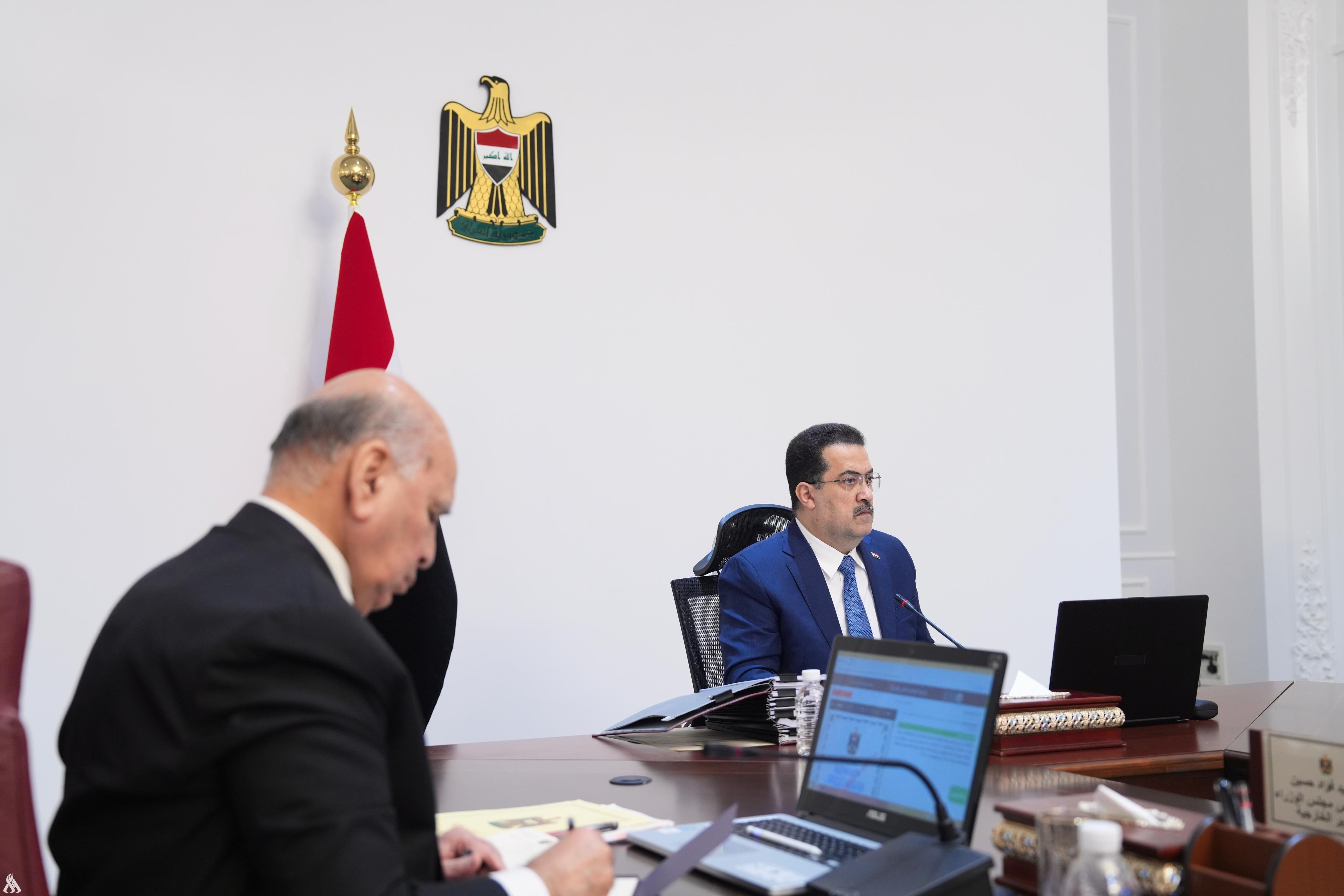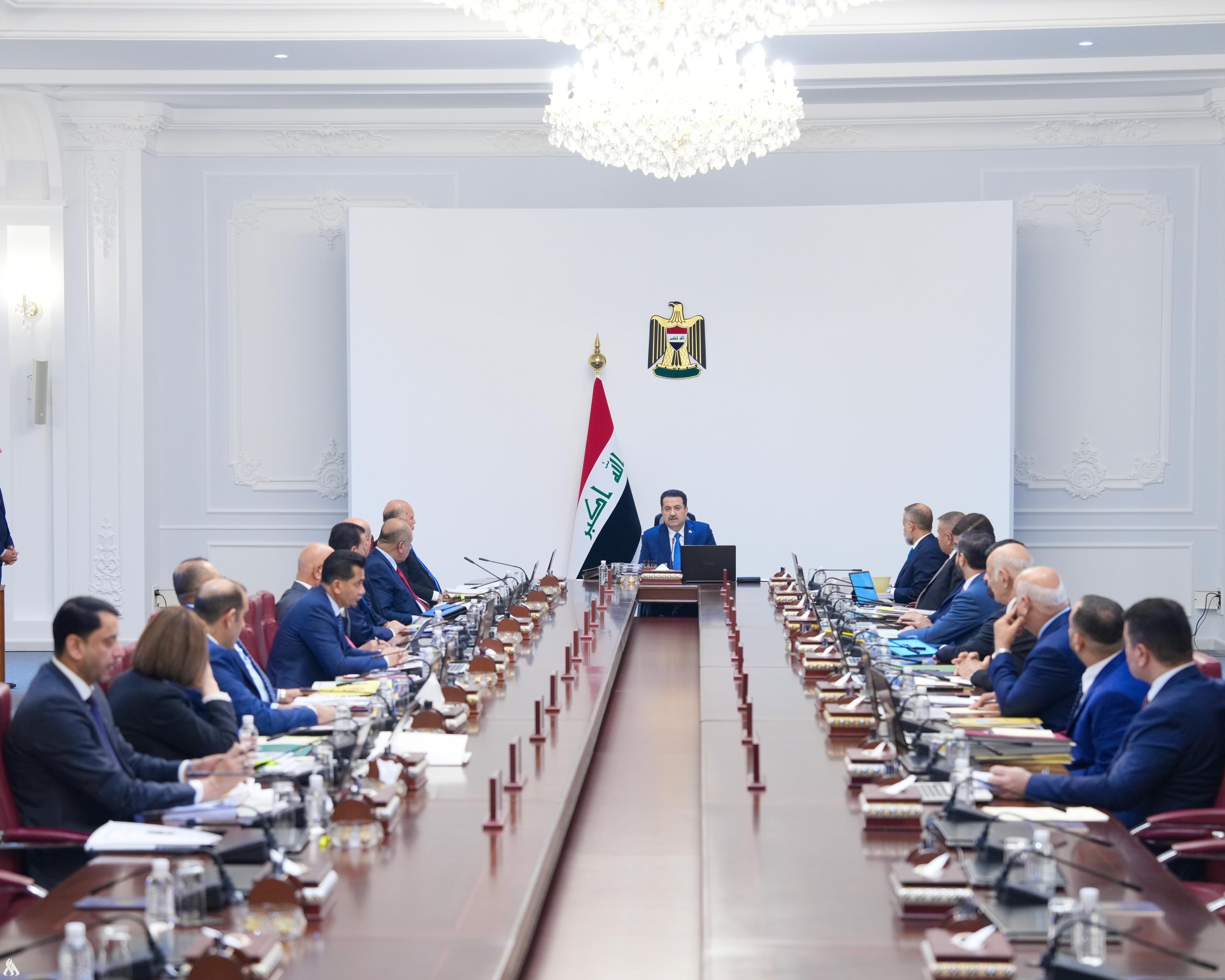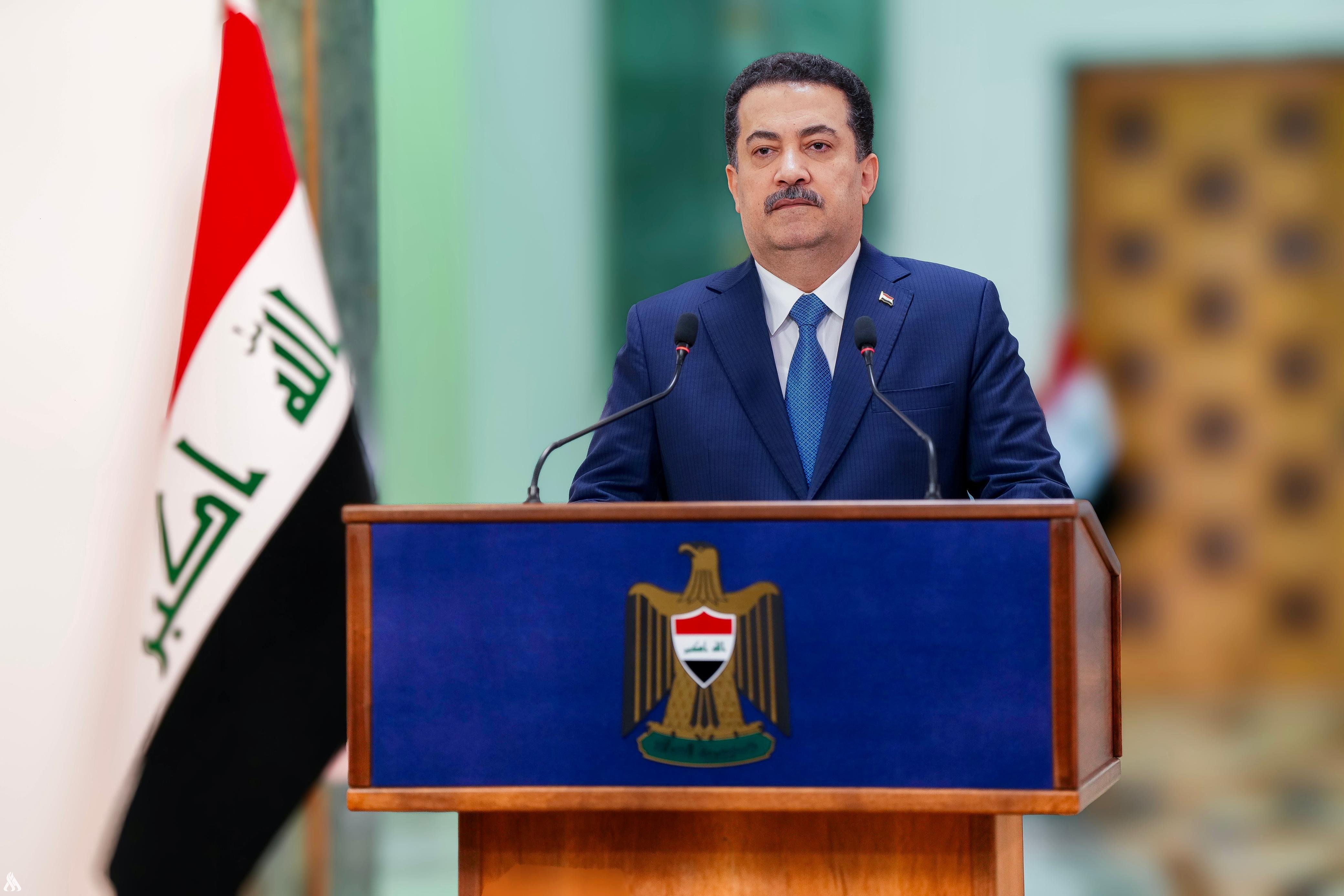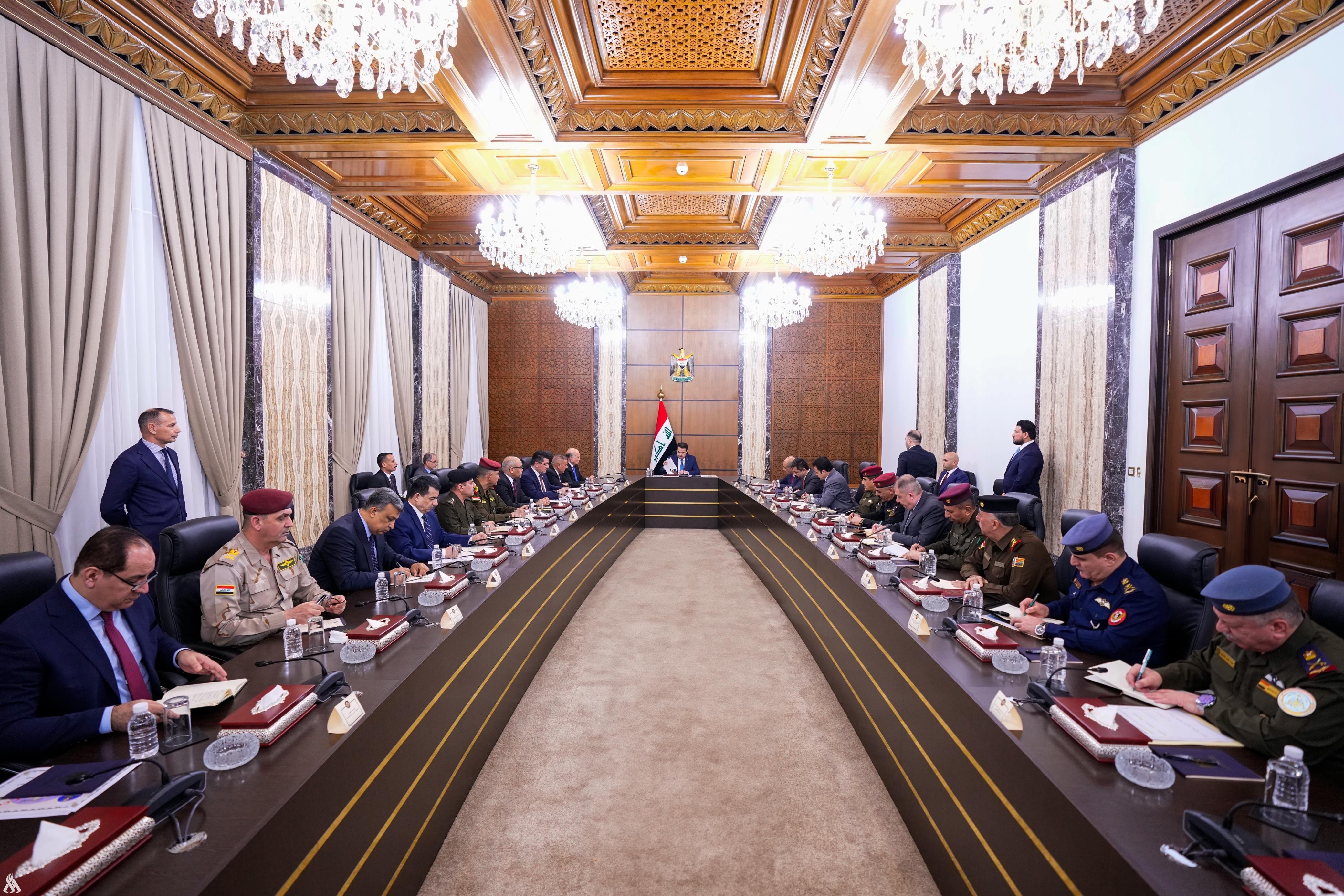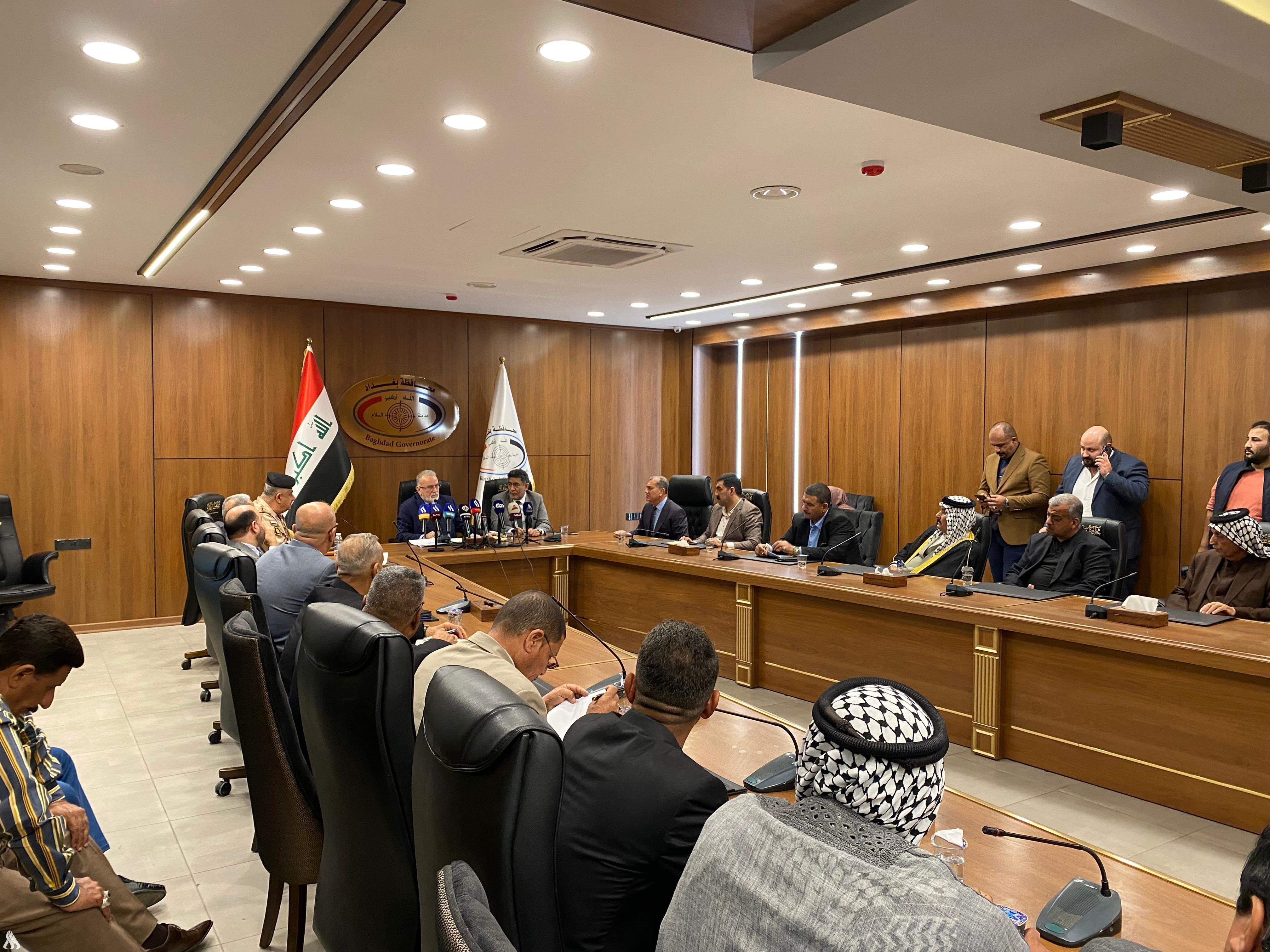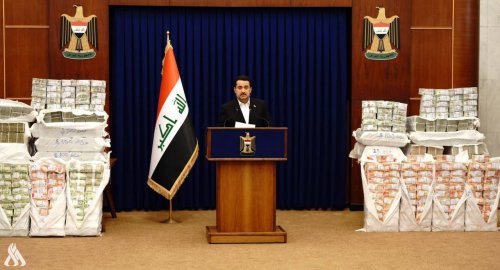
Mps and Academics appreciate Anti-Corruption Efforts in Government program

- 26-10-2023, 12:51
Baghdad – INA
The efforts of the government of Prime Minister Mohammed Shia Al-Sudani, his ministerial program on combating financial and administrative corruption, and what has been presented during one year since he took office, have been widely welcomed.
Parliamentary and academic circles praised the achievements achieved during the government of Prime Minister Mohammed Shia Al-Sudani in the file of combating corruption at the financial and administrative levels.
Deputies and academics reviewed the most prominent priorities of the government curriculum that the prime minister's government is working on, foremost of which is the fight against corruption, especially what was achieved in the "theft of the century" file, the largest corruption file in the history of the Iraqi state, and the recovery of funds and corrupt through exceptional efforts, memorandums of understanding and agreements at the regional and international levels to achieve the desired goal.
Financial and administrative corruption
The deputy of the sadikun parliamentary bloc, Zeinab Al-Mousawi, told the Iraqi News Agency (INA) that " The government headed by Prime Minister Mohammed Shia Al-Sudani, received a heavy legacy of financial and administrative corruption," indicating that "the most prominent corruption crimes are the theft of the century, where Al-Sudani government was able to recover a large part of those funds.
Achievements of Al-Sudani government on financial corruption
Al-Mousawi added that "The Prime Minister managed to control many files related to financial and administrative corruption in the ministries of the state and provinces, and what the government provided during one year, none of the previous governments were able to achieve in full cycles".
Strengthening cooperation with international anti-corruption organizations
For her part, MP Ruqayya Al-Nouri pointed out that "the steps taken by the government of Prime Minister in the fight against corruption are practical and professional steps” , noting that “the government has worked since the first moments to strengthen cooperation with international organizations concerned with combating corruption such as the United Nations, the World Bank, the international police (Interpol) and a number of countries in order to develop the capabilities of Iraq and its institutions”.
Supreme Anti-Corruption Commission
Al-Nouri continued, "The Prime Minister, since assuming office, announced the formation of a supreme anti-corruption body, as well as the issuance of international arrest warrants that included a number of former officials residing outside Iraq in the framework of what is known as the" theft of the century", praising "the efforts and government steps in this regard".
Anti-corruption and services for citizens
Al-Nouri added that "Iraq under Al-Sudani government, has overcome most of the difficulties and challenges", stressing that "the government was able to fight corruption on the one hand and provide services to citizens, as efforts have resulted in the establishment and opening of a large number of Service, economic, investment and other projects”.
Priorities of the government program.
For his part, The Financial Adviser to Prime Minister Mizhar Mohammed Saleh said that "the issue of combating administrative and financial corruption is one of the most important priorities set out in the government curriculum of Prime Minister, which was approved by the House of Representatives".
Formation of the anti-corruption Council
Saleh added that "the executive authority has started its work in the fight against corruption through the formation of an upper support body (anti-corruption council) working in coordination with the National Integrity Commission and the Supreme Judicial Council, as it is the effective arm to address organized corruption networks, whose work has witnessed a clear decline after the capture of its most important files".
Money Recovery Act
He pointed out that" the law on the recovery of funds has begun its active role at the level of international coordination, specifically with the countries that are considered a safe haven for looted Iraqi funds “, noting that "the law includes the prosecution of funds that date back to the time of the former regime or encroachments on public money after 2003”.
He pointed out that "all procedures are subject to the provisions of Law No. 7 of 2019, which is the amended money Recovery Fund Law, which is currently managed by an active board of directors headed by the head of the National Integrity Commission, where recovery decisions are made under legal and administrative mechanisms in cooperation with all relevant state regulatory and legal agencies, whether the prosecution or the fight against economic crime, in addition to the role of the anti-money laundering, crime and terrorism funds Bureau, which has mechanisms of cooperation with the international financial community in addressing money laundering activities”.
Memoranda of understanding for the recovery of funds
Saleh continued that " the application of Article 14 of Law No. 7 of 2019 witnessed the signing of a number of memorandums of understanding with many countries, where this article obliges the executive authority when concluding investment or economic agreements with any country that has funds for Iraq to include the provisions of the law on the recovery of funds, including funds that were smuggled after 2003 due to corruption operations, as well as the United Nations Convention Against Corruption was activated by concluding cooperation agreements this year with the United Nations Development Program in order to receive international support and consolidate international cooperation in the recovery operations”.
Official statistics
In turn, the Integrity Commission said in a statistic obtained by the Iraqi News Agency (INA) that "the number of news that the commission worked on during a year of the government's life amounted to 29.168 news, while the number of criminal cases amounted to 23.232 cases and the number of judicial recruitment orders 8.690 orders" , indicating that "the number of judicial arrest warrants 3.015 orders, the number of judicial arrest warrants 1.843 orders, while the number of seizures amounted to 1692 operations in which 1021 defendants were seized and the number of convictions 699 898 convicts".
It added that " the number of financial disclosure forms received is 36,571 forms, and the number of recovery files is 70 files, 8 convicts and 29 refunds were received, "stressing that "the total public funds conserved is 1,524,752,518,309 dinars, and the number of visits, workshops and seminars reached 1.6 workshops”.
Cross-border anti-corruption
Economist Ahmed Saddam said that "despite the steps taken by the government of Prime Minister Mohammed Shia Al-Sudani, they were in the right direction, but they cannot address the accumulations of previous governments in just one year".
Institutional system reform
He explained that "these steps can be the beginning of a broader path consisting in reforming the institutional system in order to reduce the level of rampant corruption, and first of all to reconsider the criteria for selecting heads and managers of departments in state institutions, in addition to the other step, which is automation programs that alleviate direct dealing and reduce the level of corruption, especially at border ports".
For his part, journalist and political analyst Hamza Mustafa stressed that" Al-Sudani put anti-corruption among the priorities of his work”, noting that "previous governments included an anti-corruption paragraph in their government program, but Al-Sudani differed from them because they set a set of priorities within the government program to address poverty and fight corruption as well as provide basic services to citizens.
He added that "steps have been taken to combat the poverty line, through taking steps by the Ministry of Labor and relevant authorities, as well as basic services, which included the issue of dismantling traffic jams in Baghdad, which is a big project and needs time to appear on the ground".
The Scourge of Corruption has Spread to the Body of the State
Political analyst Haider Al-Barzanji also said that "the scourge of corruption has spread through the body of the state and the issue needs time and the agreement of governments to raise the slogan of fighting corruption and work within a series of measures".
A real will to address the corruption file
Al-Barzanji continued that "there is a real will in Al- Sudani government to combat and address the file of corruption, as only a day passes and the arrest or recovery of funds to the state treasury or accountability and monitoring of the corrupt " ,noting that " the issue of fighting corruption is not easy, but after a year, Al Sudani government is better than previous governments, as there are real deterrent measures, and many corrupt were brought to the competent courts and sentences were issued against them, besides that a lot of money was returned to the state treasury”.
He expressed “his ambition that there will be more serious steps in the coming years" ,stressing that "the issue of combating corruption needs a real harsh legislative system that limits the underestimation of corruption cases, as well as the presence of deterrent and realistic penalties and competent courts”.
The efforts of the government of Prime Minister Mohamed Shia Al-Sudani, his ministerial program on combating financial and administrative corruption, and what has been presented during one year since he took office, have been widely welcomed.
Parliamentary and academic circles praised the achievements achieved during the government of Prime Minister Mohamed Shia Al-Sudani in the file of combating corruption at the financial and administrative levels.
Deputies and academics reviewed the most prominent priorities of the government curriculum that the prime minister's government is working on, foremost of which is the fight against corruption, especially what was achieved in the "theft of the century" file, the largest corruption file in the history of the Iraqi state, and the recovery of funds and corrupt through exceptional efforts, memorandums of understanding and agreements at the regional and international levels to achieve the desired goal.
Anti-corruption and services for citizens
It added that " Iraq, under the government of Al-Sudani, has overcome most of the difficulties and challenges" , stressing that "the government was able to fight corruption on the one hand and provide services to citizens, as efforts resulted in the establishment and opening of a large number of Service, economic, investment and other projects”.
Brazil police accuse Bolsonaro and ex-ministers of 2022 coup plot
- International
- 09:12
North Korean leader says past diplomacy only confirmed US hostility
- International
- 08:45


